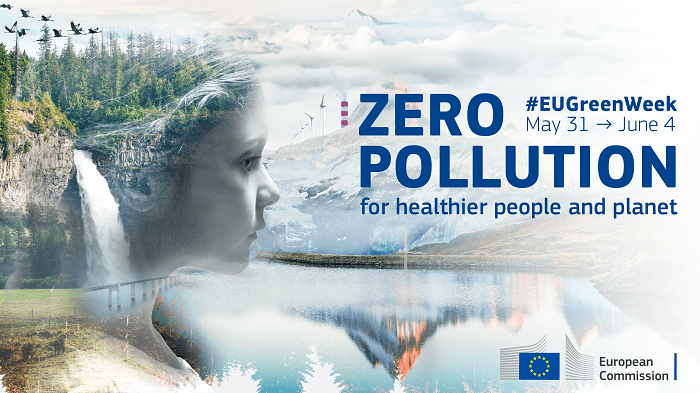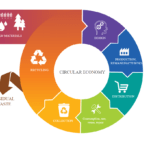The European Commission and the European Committee of the Regions have launched a Stakeholder Platform to help implement the EU Action Plan: “Towards Zero Pollution for Air, Water and Soil”.
The Action Plan – a key deliverable of the European Green Deal and the main topic of this year’s EU Green Week – was adopted on 12 May 2021. It sets out an integrated vision for 2050 to reduce pollution to levels that are no longer harmful to human health and natural ecosystems, as well as intermediary targets for 2030, and actions to achieve the objectives.
Cities and regions have a key role to play in translating this vision into action on the ground. Reducing pollution requires clean choices for regional and urban mobility and energy, investments in buildings and infrastructure, as well as overall spatial planning. All these decisions affect the health and wellbeing of citizens.
The Zero Pollution Stakeholder Platform will help deliver on the flagship initiatives and actions set out in the Zero Pollution Action Plan by
- bringing together actors from different communities and areas of expertise to tackle inter-related challenges, e.g. strengthening a joint environment and health agenda;
- defining a common vision on how to achieve zero pollution objectives;
- developing and sharing good practices on cross-cutting topics such as financing for zero pollution innovation and jobs, boosting sustainable production and consumption, and creating thematic hubs like the Clean Air Tech Hub.
Commissioner for the Environment, Oceans and Fisheries Virginijus Sinkevičius said:
“Cities and regions are at the forefront of implementing policies related to pollution, and are major drivers in the green transition. Many are already finding innovative solutions to clean their air, water and soil, and encourage more sustainable patterns of production and consumption. I am delighted to partner with the European Committee of the Regions to create this new platform to share these good ideas, and support zero pollution objectives on the ground.”
The President of the European Committee of the Regions and Governor of the Region of Central Macedonia in Greece, Apostolos Tzitzikostas, welcomed the platform saying:
“We all have a responsibility to act to protect our environment, leaving the safe and healthy future our children and planet deserve. Governments, businesses and stakeholders must all come together to stop the pollution of our water, air and land. It needs local leadership which is why the European Committee of the Regions is delighted to launch the Zero Pollution Stakeholders Platform with the European Commission”
Background
Pollution is the largest environmental cause of mental and physical diseases, and of premature death, especially among vulnerable groups such as children, people with certain medical conditions and older generations. People who live in more deprived areas often live close to contaminated sites or in areas with elevated traffic flows. Pollution is also one of the main reasons for the loss of biodiversity, diminishing the capacity of ecosystems to provide services such as carbon sequestration and air and water decontamination.
Cities are particularly affected by pollution. Over 100 cities in the EU still do not meet EU air quality standards. And despite the improvements in compliance for urban wastewater treatment, there is still sewage from around 37 million people which is not properly treated, with 7 capital cities of EU Member States not meeting the minimum requirements. Ensuring proper wastewater treatment will require investments of over EUR 200 billion in the coming years.







Leave a Reply